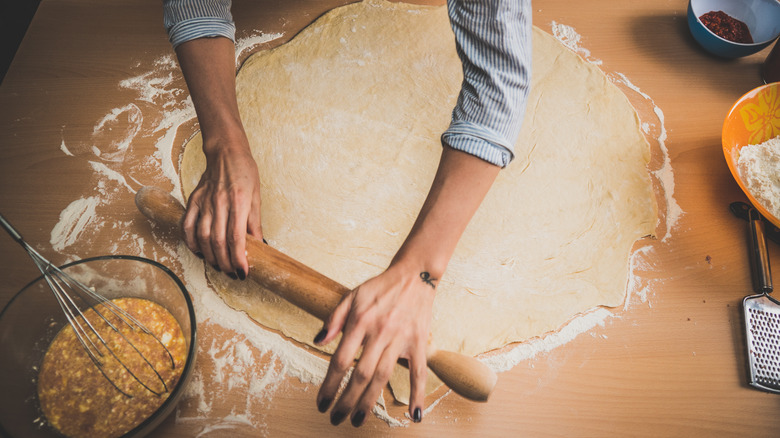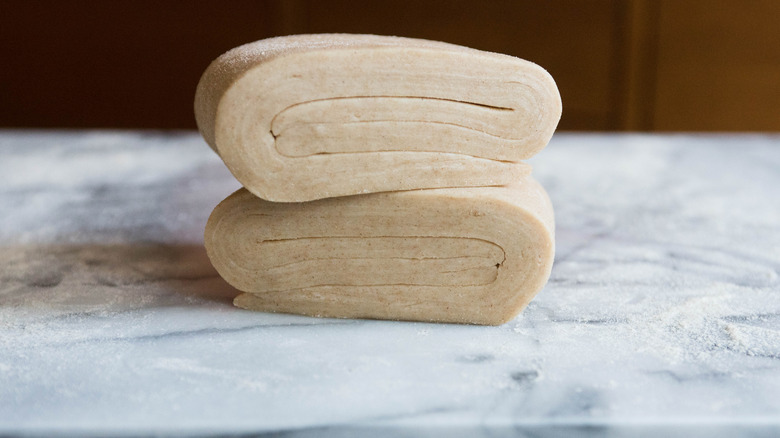Ice Your Countertops For Hassle-Free Dough Work
When it comes to laminating pastry, rolling out pie dough, and cutting out biscuits, the name of the game is to beat the heat. Bakers and pastry chefs have all sorts of tricks to help keep their carefully layered and pea-size butter chunks from melting away and sticking to their countertops. They'll freeze their butter, refrigerate their rolling pins, and even plunge their own hands into ice water to keep things cool. But there's another way you can maintain cold temperatures: icing your countertops.
As the main surface that your butter-rich dough will come in contact with, it makes sense that ensuring your countertop gets a touch of frost will help your dough stay cool. In fact, many pastry chefs opt for marble or stone surfaces for lamination as they retain cold temperatures better than porous wood. Still, any countertop will work for your pastry-making as long as it's smooth enough (grainy surfaces can tear your tender dough) and you take some time to ice it down. So how exactly should you chill your cumbersome countertop without cranking the AC?
The cool power of an icy surface
Since shoving your kitchen island into the refrigerator is out of the question, you'll need to get your hands on some gallon-sized zippered bags and ice. Fill up the bags with a makeshift ice bath — a blend of ice and cold water — and then lay them flat on your countertop. You'll probably only need about two to three ice bath bags to cover the surface you'll use when rolling out your buttery dough. Ten to 15 minutes later, your countertop will be nicely chilled. After that, simply wipe any leftover condensation (we don't want pasty pastry) and begin laminating the dough.
If you're missing a few key items for this method, like plastic bags, you can use a baking sheet or even a glass casserole dish to house your ice during the chill. If you don't even have ice on hand, try using frozen vegetables, like a bag of peas, or gel ice packs to cool the surface a bit. Any way you ice it, your pastry and pie will benefit from a cold, stick-free surface for the big roll-out.

